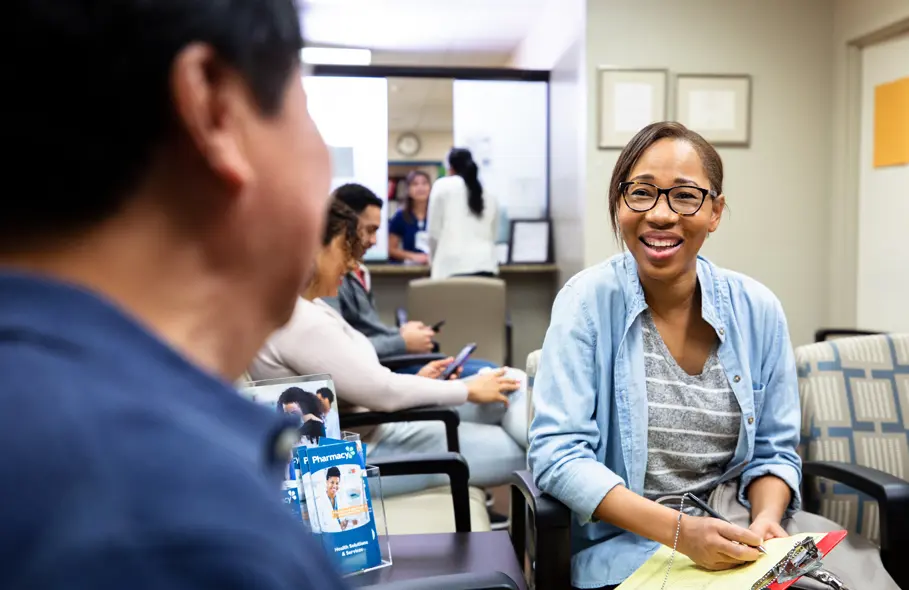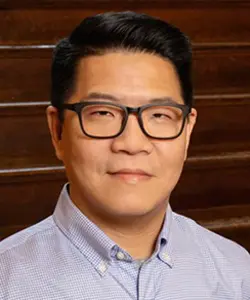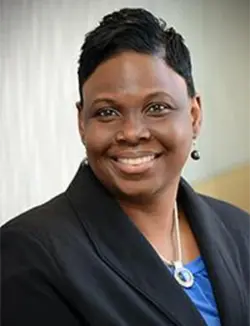Underrepresented Communities to Benefit From New Cancer Education Program
by Tom Hanlon / Apr 19, 2023

An interdisciplinary, graduate-level certificate program at the University of Illinois, beginning this fall, is aimed at training people to provide and facilitate solutions and interventions for cancer patients in underrepresented communities.
The College of Education at the University of Illinois Urbana-Champaign and the Cancer Center at Illinois are collaborating on a graduate-level, online Campus Graduate Certificate (CERT) program to train people who aspire to be cancer researchers, healthcare providers, and community stakeholders in developing and implementing cancer management solutions and interventions for underrepresented communities.
The CERT program’s first cohort will begin in fall 2023, with a typical plan of study consisting of 16 hours.
The Cancer Education and Management in Underrepresented & Diverse Communities CERT program will also prepare participants to design and conduct studies to measure the change in response to cancer management interventions in underrepresented communities.
Wenhao David Huang, professor and associate head of the Department of Education Policy, Organization and Leadership (EPOL), and Margaret Browne Huntt, assistant director for strategic research initiatives and chief diversity officer for the Cancer Center at Illinois, speak about the importance and potential impact of the program.
College of Education (COE): Talk about the needs that led to developing a cancer education and management program specifically aimed at underrepresented and diverse communities.
Margaret Browne Huntt (MBH): Disparity in cancer research, treatment, and rates, particularly in underrepresented communities, is a challenging reality that demands timely actions. These actions should be interdisciplinary in order to be effective and sustainable. In looking at the current offerings, we realized that there was a gap that we could fill through a collaborative partnership with the Cancer Center at Illinois and the College of Education.
 Wenhao David Huang (WDH): Education is a change agent that has been somewhat neglected in the context of health education for adult learners everywhere. This lack of attention and resource investment is leading to many disparities and inequities in current healthcare systems, particularly in underrepresented and underserved communities. The need for this program is twofold. First, due to its online format, the program will respond to the need for learners around the world to develop knowledge, skills, and abilities to empower underrepresented communities with advanced cancer care and management solutions. Second, the program will create a platform to address the need of advocating for additional health education resources for underrepresented communities around the globe.
Wenhao David Huang (WDH): Education is a change agent that has been somewhat neglected in the context of health education for adult learners everywhere. This lack of attention and resource investment is leading to many disparities and inequities in current healthcare systems, particularly in underrepresented and underserved communities. The need for this program is twofold. First, due to its online format, the program will respond to the need for learners around the world to develop knowledge, skills, and abilities to empower underrepresented communities with advanced cancer care and management solutions. Second, the program will create a platform to address the need of advocating for additional health education resources for underrepresented communities around the globe.
COE: How will this program meet those needs?
WDH: The online nature of the CERT program will allow us to broaden access to quality cancer care and management education for learners around the world. We also anticipate the collaboration among learners and between learners and our world-class faculty to contribute significantly to the overall learning experience and learning outcomes of the program. To address the second need I mentioned, the program will provide opportunities for faculty at Illinois to expand the program offering based on their scholarship in cancer research, change facilitation, and diversity and inclusion improvement across contexts. More resources, in turn, would be available to address cancer care and education disparities in many underrepresented communities.

MBH: In addition to training individuals to design cancer management implementation solutions, the program will train students to identify factors that impact application of cancer management innovations across multiple levels, including patient, provider, clinic, facility, organization, and often the broader community and policy environment.
COE: How does the program content help students understand the needs of the underrepresented?
MBH: The program is designed to meet individual needs based on understanding one’s background. Program content is designed to discuss the biological, social, socioeconomic, personal, and organization components of underrepresented communities. There is that level of flexibility to allow entry to individuals based on one’s positionality.
COE: What are the prerequisites for those who want to enroll?
WDH: The prerequisites for the CERT program are similar to many post-baccalaureate programs that are interdisciplinary in nature. The primary function of the CERT program is to provide prospective learners with opportunities to experience graduate-level training before committing to any graduate degree programs at the master’s level. Credits earned through this CERT can also be counted towards existing graduate degree programs at UIUC upon admission. We are very interested in serving students with bachelor credentials whose interests are grounded in empowering underrepresented and underserved communities in improving cancer care and management. We anticipate this program to be unique in connecting cancer research, cancer care, cancer education, and community empowerment with an accessible online CERT program from a Research One land grant university.
COE: What are the backgrounds of the instructors?
WDH: Instructors for the program are well versed in the areas of diversity and equity; race, gender, and sexuality; cancer biology; and organizational development. We’ve pulled together a dynamic team from the Cancer Center at Illinois and Department of Education Policy, Organization and Leadership to develop and launch this program.
COE: Who should be interested in this certificate?
MBH: Honestly, anyone who works with, in, and alongside communities who are underrepresented and marginalized. Specifically, we have identified the following groups who would be most impacted: cancer researchers, health care providers, and community stakeholders. Of course, anyone who is interested and is not part of the aforementioned groups is also welcome to participate.
COE: How will attaining this certificate impact a person’s professional career?
WDH: We hope the CERT program’s training will inspire people to pay attention to cancer care disparities from the perspective of educational engagement and changes in underrepresented and underserved communities. If such inspiration leads to professional growth, it would be great! I can see the recipients of this CERT contributing to the roles of health education specialists, social workers, community organizers with a focus on healthcare, advocates for underrepresented and underserved communities and their healthcare, consultants for community empowerment and change, cancer researchers, cancer care providers, and more. One thing I am sure of is that this line of career will be safe from the workforce automation that we have been seeing recently.
Learn more about the Cancer Education and Management in Underrepresented & Diverse Communities Certification program here.